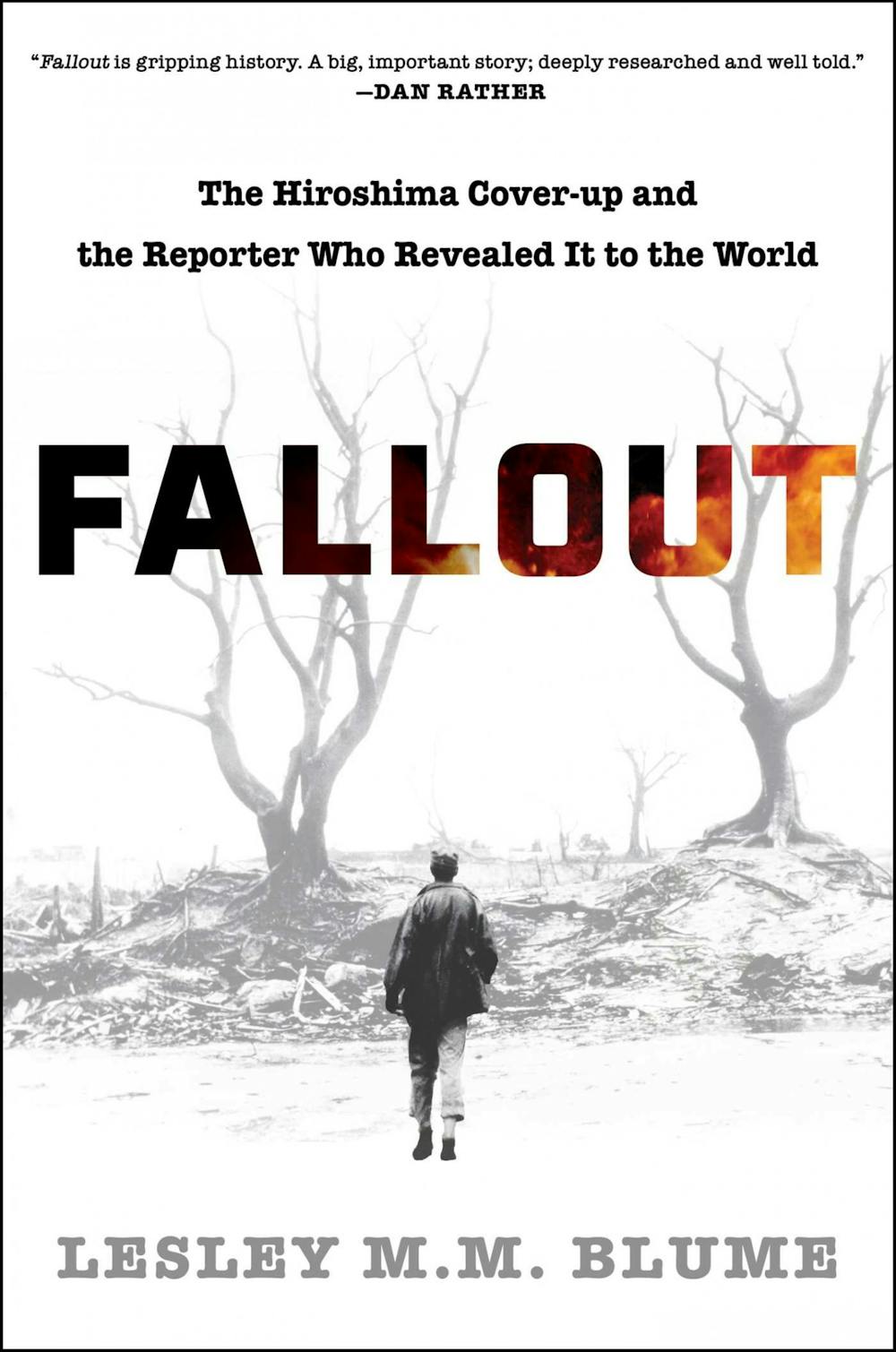Editor’s note: This book review contains graphic depictions of violence.
New Mexicans are perhaps more acutely aware of U.S. nuclear capabilities and the bomb, “Little Boy,” dropped on Hiroshima, since its predecessors were developed and tested in our own backyard. However, most people alive today will not remember the immediate aftereffects of the outsized attack on Japanese citizens that capped off the second world war.
Modern awareness of the atomic bomb and the events of WWII are mostly relegated to fictionalized accounts contained in films such as “Pearl Harbor” and “Schindler’s List.” The events surrounding WWII have long since become a cultural legend, and first-person memories of these events no longer exist. We’ve simply forgotten the horrors of global war — until now.
Leslie M. M. Blume set out to refresh our collective memory regarding the widely recognized end of WWII in “Fallout: The Hiroshima Cover-up and the Reporter Who Revealed It to the World.” She has done so in spectacular fashion – recalling our consciousness to the famous New Yorker article written by one John Hersey.
Blume details the difficulties Hersey confronted in reporting the truth of the atomic bomb’s lingering effects on Japanese citizens and the censorship levied against war correspondents prior to and during Hersey’s investigative presence in Japan.
Blume somehow manages to insert the reader in a manner usually only employed by fiction novels. She plies the reader with insight into how Hersey was able to convince Japanese victims to talk to him – a man they had every reason to hate and mistrust as a representative of their enemies in the U.S.
She explains that Hersey’s interviewees found him affable, educated and empathetic. His personal qualities endeared him to these people who would otherwise have gladly sent him on his way without a word.
Reading this book provides a timely and poignant reminder on the 75th anniversary of the bombings. One is forced to confront the human cost of nuclear weapons. Blume brilliantly interweaves Hersey’s reporting with her own so the reader is able to feel present with Hersey during his research and the victims of Little Boy’s aftereffects.
It becomes more and more clear that those who perished immediately with the bomb’s initial blast were the lucky ones.
Hersey and Blume graphically recount the physiological and psychological trauma Little Boy’s victims endured. One particularly memorable excerpt states, “(Japanese soldiers’) eyes had melted away in their sockets; the liquid had run in rivulets down their faces, which were burned beyond recognition.” Other excerpts tell of victims whose faces had “melted” with the blast so that their appearance seemed blurred.
Clearly, this novel contains sensitive and graphic depictions of physical trauma suffered by Japanese citizens of Hiroshima. This fact takes nothing away from the importance of the reader confronting these depictions to truly understand the catastrophic risks of nuclear war.
Fictional chaos theorist Dr. Ian Malcolm (played memorably by Jeff Goldblum) said in the film “Jurassic Park,” “Your scientists were so concerned with figuring out if they could that they didn’t stop to ask themselves whether or not they should.” This concept and ethical philosophy is perhaps more applicable to the invention of the atomic bomb — a weapon capable of far more devastating effects, up to and including nuclear winter, environmental devastation and species annihilation, than a few stray T-Rexes in a theme park.
Get content from The Daily Lobo delivered to your inbox
As Hersey conveys and Blume emphasizes, nuclear weapons are a tool that could potentially bring about humanity’s self-inflicted extinction. Hersey’s reporting on the atomic bomb’s effects on the citizens of Hiroshima is perhaps a deterrent preventing nuclear disaster, but we must keep these consequences at the front of our minds to continue avoiding the doomsday clock finally tolling the midnight hour. “Fallout” is the poignant reminder we need right now.
Hevyn Heckes is a freelance reporter at the Daily Lobo. She can be contacted at culture@dailylobo.com or on Twitter @H_Squared90






